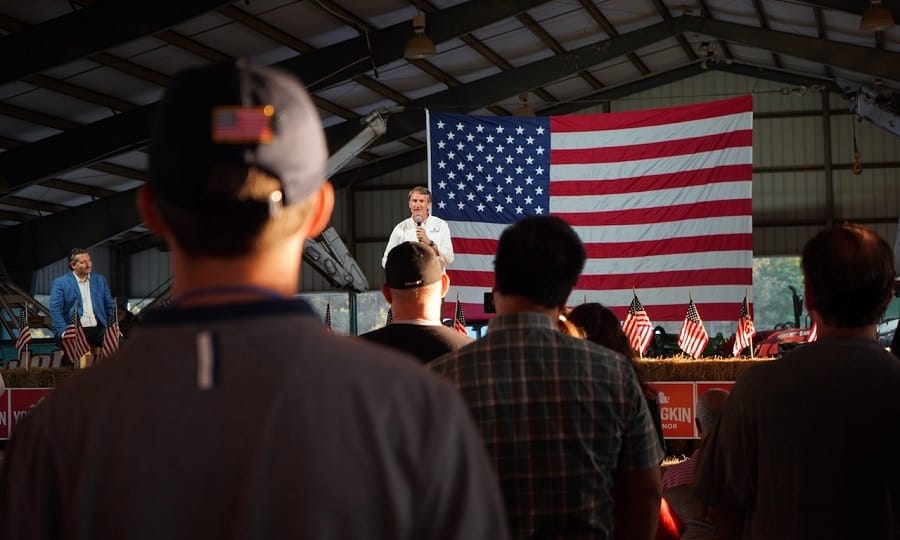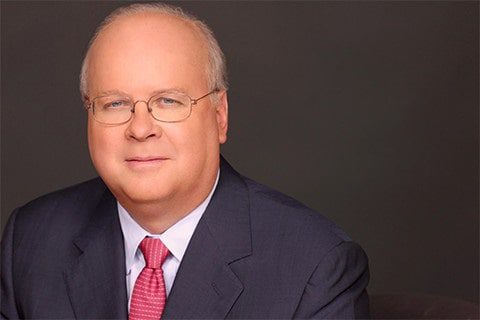
OP-Ed first published in the Wall Street Journal
Opinion
By Karl Rove
Yes, Republican Glenn Youngkin’s victory in the Virginia governor’s race Tuesday was made possible in part by President Biden’s lousy poll numbers. Mr. Biden is at 43% approval, 51% disapproval in the RealClearPolitics average—the worst standing of any modern president at this point except Donald Trump.
Still, in a state Mr. Biden carried by 10 points, Gov.-elect Youngkin needed more than bad national presidential numbers. He mounted a superb campaign that Republicans running in purple or light-blue areas next year should study closely.
Though Mr. Youngkin is a political outsider—his background is in private equity as a Carlyle Group co-CEO—the first-time candidate was smart enough to start by offering an agenda focused on the economy, education and crime. He talked a lot about his “game plan” to strengthen Virginia’s economy by cutting needless red tape, streamlining approval for new businesses, and helping families by ending the grocery tax. On education, he offered a pro-parent plan that included higher standards; teaching every child to read, write and understand math by the third grade; and creating more charter schools. On crime, he advocated full funding of law enforcement and reform of the parole board.
Mr. Youngkin blanketed the airwaves with positive ads so Virginians would know why the fleece-wearing businessman who coached his kids’ basketball team was running, and he started doing it before Democrats tried making him President Trump’s Mini-Me. The campaign ran 18 different positive spots to highlight his agenda; 12 to attack his opponent, former Gov. Terry McAuliffe; and five contrast ads comparing the two men’s records—an unusually positive mix.
When it was on offense, Mr. Youngkin was specific. He whacked Mr. McAuliffe for opposing Virginia’s right-to-work law, lowering education standards as governor so no school received a failing grade, and appointing parole board members who became mired in controversy. Mr. Youngkin punched particularly hard when issues of critical race theory, the role of parents in their children’s education, and school safety emerged.
In February and March, while his GOP primary competitors focused only on the upcoming nominating convention, Mr. Youngkin devoted significant resources to creating coalition groups. Some were traditional Republicans: farmers, veterans and small-business owners. But he also made a big effort with groups among which the GOP must do better—including Asian-Americans and Pacific Islanders, blacks, educators, healthcare workers, Latinos, and women.
Mr. Youngkin kept a distance—not disrespectful but also undeniable—from Mr. Trump. He praised the former president’s policies when he agreed and voiced his disagreement where needed—as when the former president dialed into a mid-October “Stop the Steal” rally where Steve Bannon appeared in person and repeated Mr. Trump’s false claims that he won in 2020.
Mr. Youngkin’s strategy paid off with big suburban gains, propelled by a 15-point swing among white women and 28 points among independents. In Northern Virginia, he took 35% in Fairfax County (compared with Mr. Trump’s 28%) and 44% in Loudoun (where the former president got 37%). In Virginia Beach, historically Republican but narrowly carried by Mr. Biden, Mr. Youngkin got 54%, about 8 points more than Mr. Trump. And in the formerly GOP-leaning Richmond suburbs of Henrico and Chesterfield, which both went for Mr. Biden, Mr. Youngkin took 41% and 52%, respectively, running 6 points ahead of Mr. Trump in each county.
Republican gains were not limited to swing areas. In Bristol in Southwest Virginia, Mr. Youngkin improved on Mr. Trump’s 69% by taking 73%. The Republican gubernatorial hopeful gained the support of Trumpistas by emphasizing issues that affected them, not by focusing on someone who wasn’t on the ballot.
Op-Ed by Mr. Rove courtesy of rove.com

Karl Rove served as Senior Advisor to President George W. Bush from 2000–2007 and Deputy Chief of Staff from 2004–2007. At the White House he oversaw the Offices of Strategic Initiatives, Political Affairs, Public Liaison, and Intergovernmental Affairs and was Deputy Chief of Staff for Policy, coordinating the White House policy-making process.
Mr. Rove has been described by respected author and columnist Michael Barone in U.S. News & World Report as “…unique…no Presidential appointee has ever had such a strong influence on politics and policy, and none is likely to do so again anytime soon.” Washington Post columnist David Broder has called Mr. Rove a master political strategist whose “game has always been long term…and he plays it with an intensity and attention to detail that few can match.” Fred Barnes, executive editor of The Weekly Standard, has called Mr. Rove “the greatest political mind of his generation and probably of any generation. He knows history, understands the moods of the public, and is a visionary on matters of public policy.”
Before Mr. Rove became known as “The Architect” of President Bush’s 2000 and 2004 campaigns, he was president of Karl Rove + Company, an Austin-based public affairs firm that worked for Republican candidates, non-partisan causes, and non-profit groups. His clients included over 75 Republican U.S. Senate, Congressional, and gubernatorial candidates in 24 states, as well as the Moderate Party of Sweden.

